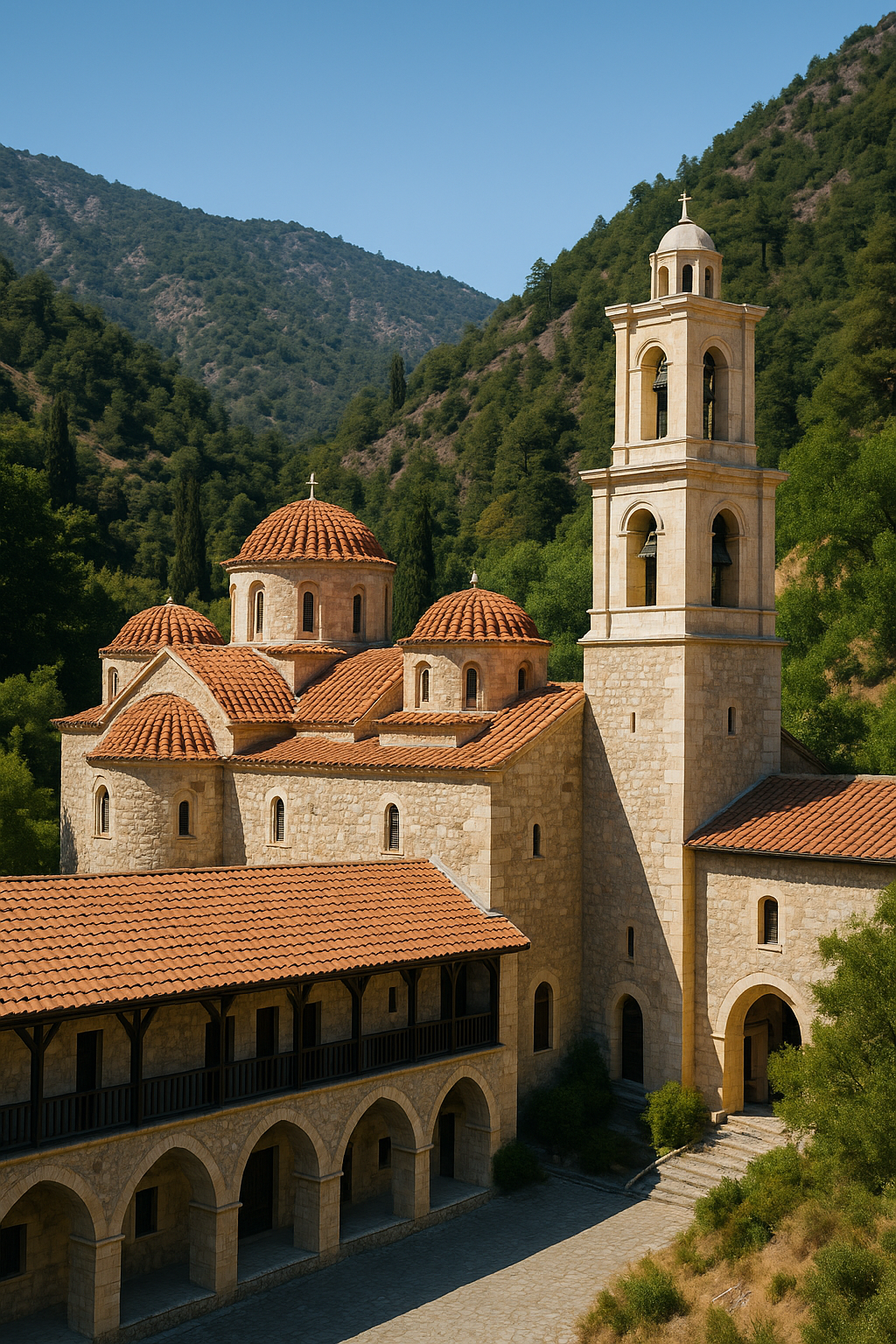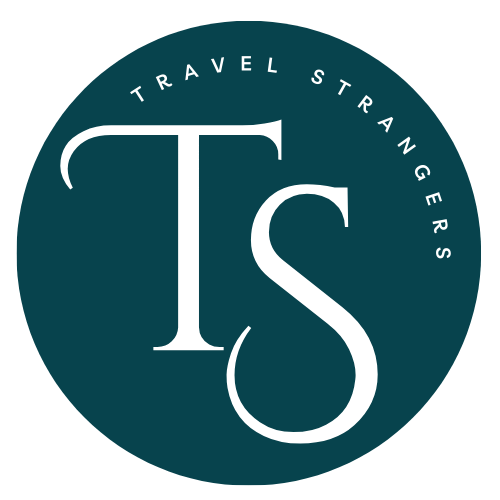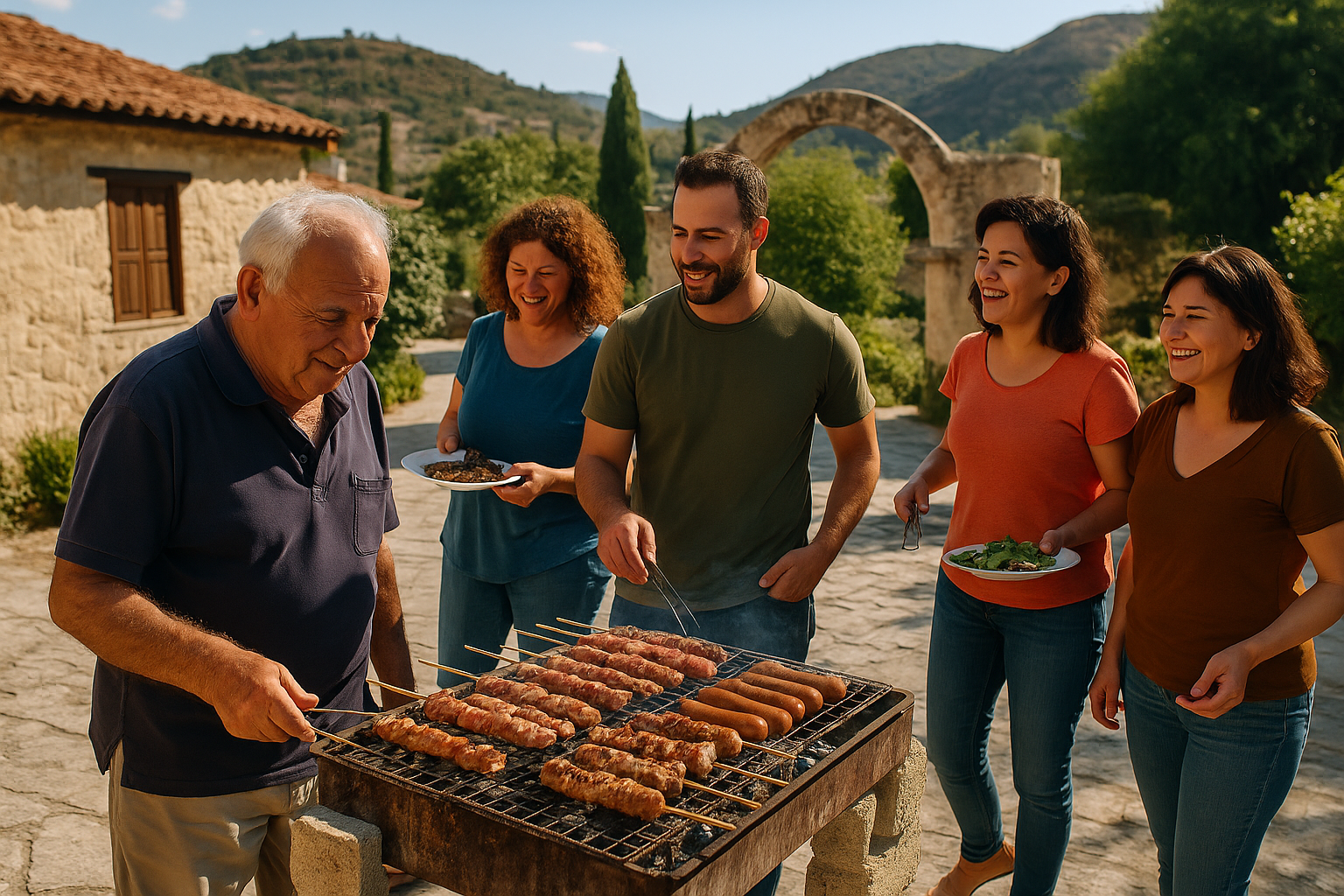Growing up in Pakistan, a country steeped in Islamic culture and tradition, my perception of the world was shaped by stories of shared histories, struggles, and faith. Among these narratives, the image of the Christian cross held a particular connotation—one tied to centuries-old tales of the Crusades, often portrayed as a symbol of opposition and conflict. It was a deeply ingrained belief, one I never thought to question. Until Cyprus happened.
My first meaningful travel and extended stay outside the Muslim world took me to this sunlit Mediterranean island. The land was a mosaic of cultures, but one thing stood out almost immediately—crosses were everywhere. Churches dotted the landscape, and the cross wasn’t just a religious symbol but an intrinsic part of the culture, appearing in homes, around necks, and even in public spaces. To someone raised in a predominantly Muslim environment, it was disorienting.
From Familiar to Foreign
When I arrived in Cyprus, I carried not just luggage but also the weight of assumptions. Growing up, the cross had symbolized “the other,” a concept often tinged with mistrust. Here, however, I was surrounded by it—not as a threat, but as an unassuming part of everyday life.
Initially, I felt uneasy. Questions swirled in my mind: Was this really a safe place? Could I connect with people who seemed so fundamentally different from me? But life has a way of surprising you when you least expect it.
Humanity Beyond Symbols
It was in Cyprus that I met people who shattered my preconceptions. Neighbors, shopkeepers, colleagues—they weren’t defined by the symbols they wore or the churches they frequented. They were kind, generous, and curious about me as much as I was about them.
One family, in particular, welcomed me into their home like one of their own. Over meals of halloumi, fresh olives, and pita bread, we laughed, shared stories, and learned from one another. Slowly, the symbol of the cross began to lose its abstract connotations. Instead, it became part of the identity of people who treated me not as an outsider but as a friend.


Challenging My Worldview
This immersion into a culture so different from my own was the beginning of what I now know as a disorienting dilemma. For the first time, I found myself questioning my belief system and the narratives I had grown up with.
Why had I assumed the cross was a “threat”? Were these assumptions truly my own, or were they inherited? Most importantly, could I reconcile my faith with a newfound respect for a different way of life?
As I wrestled with these questions, something profound began to happen. I realized that humanity is far more nuanced than the symbols we carry. The cross was no longer a symbol of division but a reminder of shared struggles, resilience, and faith—qualities that transcend religious boundaries.
Transformation Through Travel
That journey to Cyprus became a turning point in my life. It taught me that to truly grow, one must step out of familiar environments and embrace the unfamiliar. It is only by disorienting ourselves, by challenging our deepest assumptions, that we can begin to transform.
My time in Cyprus didn’t just teach me about others—it taught me about myself. It opened my heart to the possibility of unity in diversity and showed me that true understanding comes not from seeing the world through a singular lens but from embracing its myriad perspectives.
Conclusion: The Power of Disorientation
Traveling to Cyprus was more than a physical journey; it was an emotional and spiritual one. It dismantled walls I didn’t even know I had built and laid the foundation for lifelong friendships.
In hindsight, I realize that stepping into the unknown is the most powerful catalyst for change. If we only stay within the boundaries of what we know, we limit our potential to grow. But if we dare to venture into unfamiliar territories, whether they are geographic, cultural, or intellectual, we open ourselves to transformation, one experience at a time.
Cyprus was my crossroads, and it forever changed the way I see the world. Would you let your disorientation do the same?


Leave a Reply